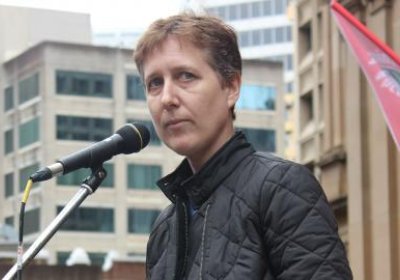Tens of thousands of people mobilized in Boston on August 19 in a magnificent display of solidarity against a rally that far-right and neo-Nazi forces had been organising for weeks.
Defying sweltering summer heat and humidity, thousands marched and chanted their way through the streets of Boston.
About 15,000 took part in a two-mile march from Roxbury Crossing to Boston Common, where the white supremacists were gathering. But by the time the march arrived, the two-dozen or so fascists had already packed up and left, with the help of a heavy police escort.











